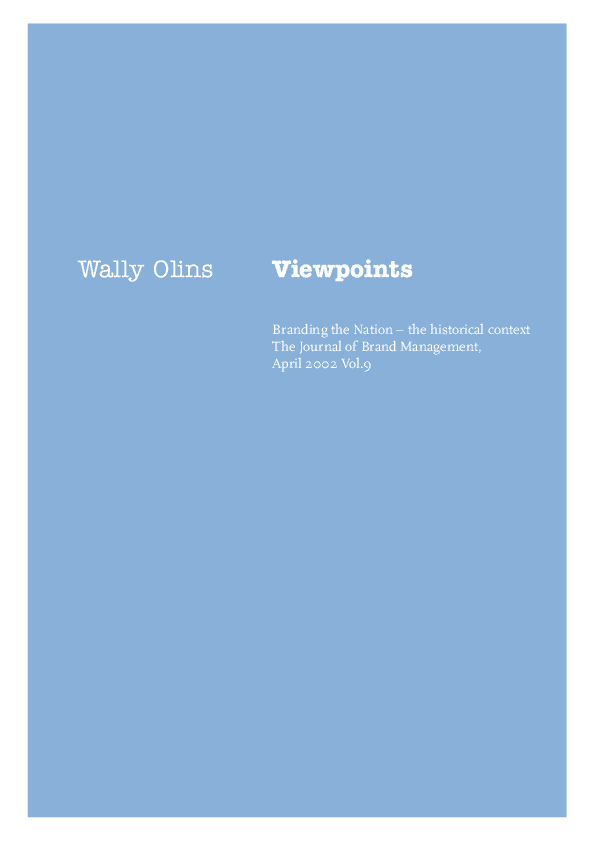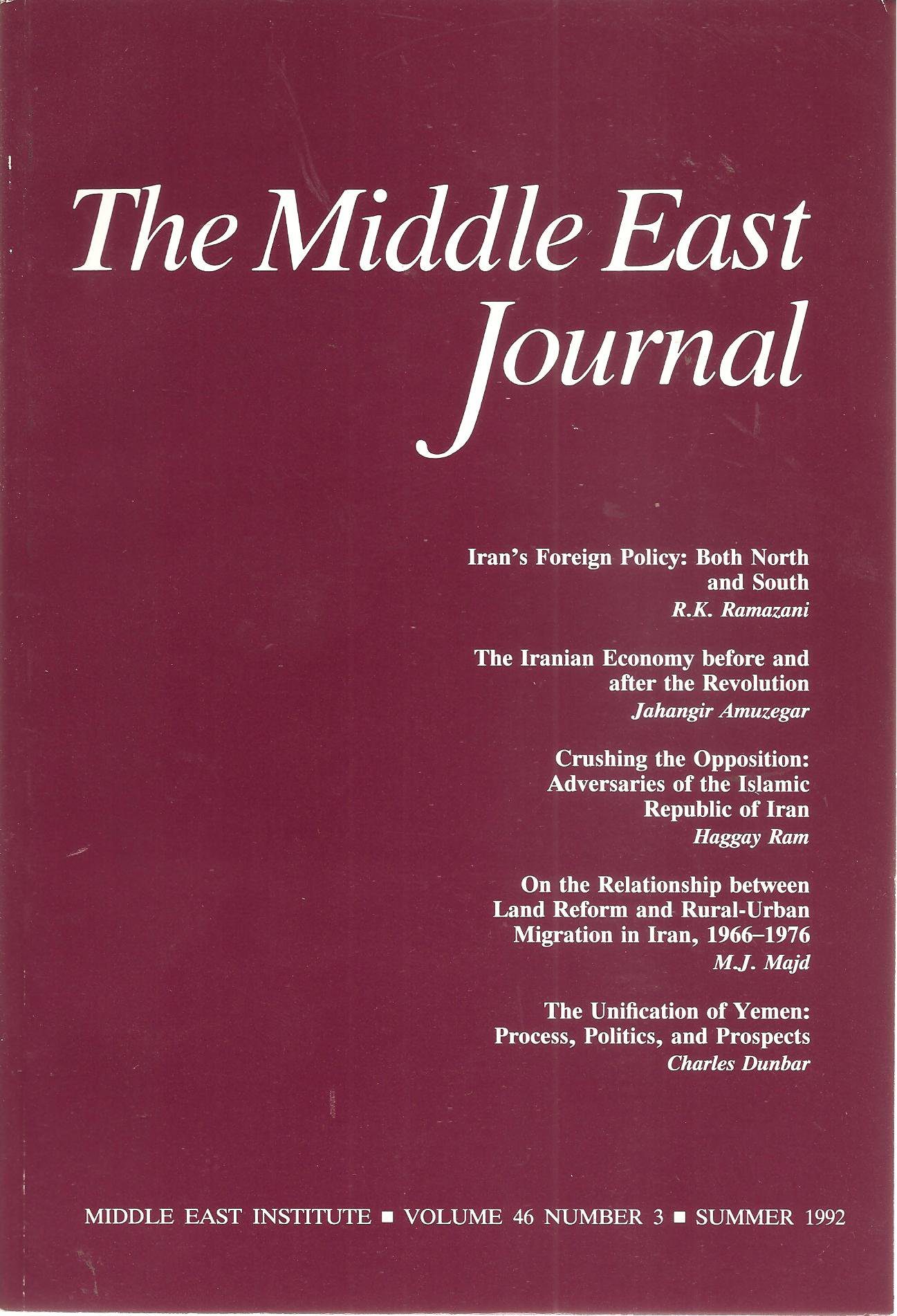Author: Edward P. Djerejian
Changing Minds, Winning Peace: A New Strategic Direction for US Public Diplomacy in the Arab and Muslim World
2007
You may also be interested in

Branding India: An Incredible Story
Branding India: An Incredible Story" explores India's journey in establishing itself as a global leader through strategic branding initiatives. The book delves into how India has successfully leveraged its rich cultural heritage, diversity, and innovation to enhance its global presence and attract investments. It showcases the country's transformation from a land of snake charmers to a hub of technology and entrepreneurship, presenting a compelling narrative of India's branding evolution on the world stage.
Public Diplomacy and Nation Branding: Conceptual Similarities and Differences
In the text "Public Diplomacy and Nation Branding: Conceptual Similarities and Differences," the authors explore how public diplomacy and nation branding share common goals of improving a country's reputation and influence globally. They highlight the distinctions between the two concepts, emphasizing public diplomacy's focus on building relationships through communication, while nation branding involves promoting a country's image and identity. The authors discuss how these practices can complement each other in shaping international perceptions of a nation.
Brands and national image: An exploration of inverse country-of-origin effect
The study explores the relationship between perceptions about products produced in a country and the country's reputation and image. It considers country-of-origin effect (COO) from an inverse perspective; rather than looking at how national reputation affects perceptions of products, it measures how brand image affects country image. It used a method that blends survey and experimental design to test the effects of brand association on country image using 488 subjects. The results indicate support for an inverse COO: knowledge of the country of origin of a brand can enhance the image of the c...

Britain TM: Renewing Our Identity
This message is about embracing Britain's identity and renewing it for the future. It discusses the importance of celebrating traditions, values, and cultural heritage while adapting to modern challenges and opportunities. The focus is on maintaining a sense of national pride and unity while moving forward towards a bright and successful future.

Changing Minds, Winning Peace: A New Strategic Direction for US Public Diplomacy in the Arab and Muslim World
A reprint of the historic report of the Advisory Group on Public Diplomacy for the Arab and Muslim World, this document was submitted to the US Congress in 2003 as a first step toward reforming America's dilapidated strategic communication infrastructure. The bipartisan Advisory Group, chaired by Ambassador Edward P. Djerejian, made a series of recommendations in this report that helped re-shape US public diplomacy.
The emergence of international public opinion and the origins of public diplomacy in Japan in the inter-war period
The emergence of international public opinion and the origins of public diplomacy in Japan in the inter-war period.

Public Diplomacy’s Branding Trap
In "Public Diplomacy's Branding Trap," the author warns against oversimplifying and relying too heavily on branding in public diplomacy efforts. They argue that focusing too much on branding can diminish the complexity and nuances of a country's image, potentially leading to misunderstandings and oversights in communication strategies. The author emphasizes the importance of authenticity, context, and relationships in successful public diplomacy initiatives.

Australia’s Public Diplomacy: Building Our Image
Australia is elevating its public diplomacy efforts to enhance its global image. The country's focus on strategic communication aims to promote its values, interests, and culture on the international stage, fostering positive relationships and understanding with other nations. Through various initiatives, including cultural exchanges and digital diplomacy, Australia seeks to build strong networks and increase its influence in the global community.

Branding the Nation – The historical context
The text discusses the importance of branding a nation within a historical context. It emphasizes how branding has been used throughout history to shape national identities and perceptions, highlighting examples such as coat of arms, flags, and national symbols. The message underlines the significance of branding in establishing a strong national image and fostering unity among citizens.

Marketing a Country: Promotion as a Tool for Marketing a Country
It has been ten years since the first occasional paper by the Foreign Investment Advisory Service, Marketing a Country, was published. In that time Marketing a CountrY has become a standard text on the structure and functions of agzncies that promote foreign direct investment. I have seen copies of the paper in ministries and promotion agencies all over the -world. Usually pages are dog-eared, and the text is heavily underlined, indicating intense study of the contents. Marketing a Country created a languagTe for discussing the investment promotion function, and has provided a rationale fo...

Nation branding and the role of public diplomacy in assisting small island states in developing strong nation brands
The concept of applying branding principles and strategies to nation states has been around for decades. However, in recent years, the concept has occupied prime attention in academia and the business sector.

Qatar and the World: Branding for a Micro-State
There are two factors that have shaped Qatar’s integration and place in the international system. The first revolves around the constraints and problems of small states while the second is Qatar’s response — a strategy of branding the state for survival. This article discusses Qatar’s situation as a micro-state and analyzes the nature and success of its response.

Public diplomacy and nation brand
In a time where interaction with citizens is the key to diplomatic success, Morocco still lags behind other small states and does not yet pursue efficient strategies of public diplomacy and nation brand.

The positive branding of Islam
In the text, the positive aspects of Islam are highlighted, emphasizing values such as peace, justice, and compassion present within the religion. The message aims to counter negative stereotypes and promote a better understanding and appreciation of Islam.
The rhetoric of public diplomacy and propaganda wars: A view from self-presentation theory
Efforts by governments to affect foreign public opinion through direct communication – and in competition with rival governments – have been a stable and consistent feature of international diplomacy since the turn of the twentieth century.
Diplo: Effective and inclusive diplomacy
Diplo is a non-profit foundation established by the governments of Malta and Switzerland. Diplo works to increase the role of small and developing states, and to improve global governance and international policy development.
Want to stay up to date?
Subscribe to more Diplo and Geneva Internet Platform newsletters!


